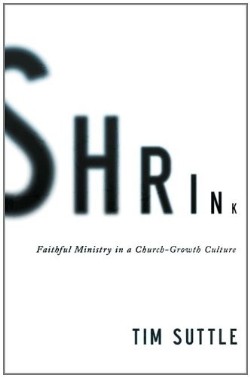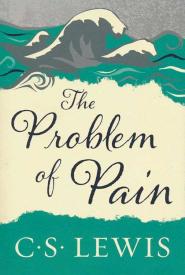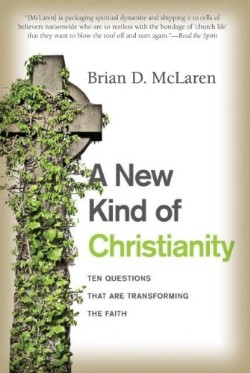Shrink : Faithful Ministry In A Church Growth Culture
$24.99
Among followers of Jesus, great is often the enemy of good. The drive to be great—to be a success by the standards of the world—often crowds out the qualities of goodness, virtue, and faithfulness that should define the central focus of Christian leadership. In the culture of today’s church, successful leadership is often judged by what works, while persistent faithfulness takes a back seat. If a ministry doesn’t produce results, it is dropped. If people don’t respond, we move on. This pursuit of ‘greatness’ exerts a crushing pressure on the local church and creates a consuming anxiety in its leaders. In their pursuit of this warped vision of greatness, church leaders end up embracing a leadership narrative that runs counter to the sacrificial call of the gospel story. When church leaders focus on faithfulness to God and the gospel, however, it’s always a kingdom-win—regardless of the visible results of their ministry. John the Baptist modeled this kind of leadership. As John’s disciples crossed the Jordan River to follow after Jesus, John freely released them to a greater calling than following him. Speaking of Jesus, John said: ‘He must increase, but I must decrease.’ Joyfully satisfied to have been faithful to his calling, John knew that the size and scope of his ministry would be determined by the will of the Father, not his own will. Following the example of John the Baptist and with a careful look at the teaching of Scripture, Tim Suttle dares church leaders to risk failure by chasing the vision God has given them—no matter how small it might seem—instead of pursuing the broad path of pragmatism that leads to fame and numerical success.
in stock within 3-5 days of online purchase
SKU (ISBN): 9780310515128
ISBN10: 0310515122
Tim Suttle
Binding: Trade Paper
Published: September 2014
Publisher: Zondervan
Print On Demand Product
Related products
-
Knowledge Of The Holy
$15.99Add to cartInformative and inspiring, The Knowledge of the Holy illuminates God’s attributes–from wisdom, to grace, to mercy–and shows through prayerful and discussion, how we can more fully recognize and appreciate each of these divine aspects. This book will be treasured by anyone committed to the Christian faith. It bears eloquent witness to God’s majesty and shows us new ways to experience and understand the wonder and the power of God’s spirit in our daily lives.
-
Problem Of Pain
$17.99Add to cartFor centuries Christians have been tormented by one question above all — If God is good and all-powerful, why does he allow his creatures to suffer pain? C. S. Lewis sets out to disentangle this knotty issue but wisely adds that in the end no intellectual solution can dispense with the necessity for patience and courage.
-
Devil At My Heels
$14.99Add to cartAthletically gifted, Louis Zamperini propelled himself from the tough streets of Southern California to the 1936 Berlin Olympics, and to an NCAA mile record at USC that stood for 20 years. When war came he left the track for a B-24-a move that would have heartbreaking consequences. On a routine mission his plane crashed into the shark-infested Pacific and he would drift 2,000 miles for 47 days before being found by the Japanese. As a prisoner of war, Zamperini endured two years of horrible torture and humiliation at the hands of a psychopathic guard nicknamed “The Bird.” Yet Zamperini endured and returned home a hero.
Unfortunately, the terrible memory of his experiences haunted him. Zamperini turned to alcohol and spiraled into the depths of despair until a young preacher named Billy Graham helped him rediscover the faith that would eventually lead him to return to Japan and personally forgive all his now-imprisoned captors. Moving and unforgettable, terrifying and inspirational, Devil At My Heels is not to be missed.
-
New Kind Of Christianity
$16.99Add to cartAfter the hailstorm of controversy stirred up by the hardcover, we hope the paperback release keeps the debate going. One of the most innovative Christian voices today and author of the controversial A New Kind of Christian faces head-on the questions that will determine the shape of the faith for the next 500 years.






Reviews
There are no reviews yet.